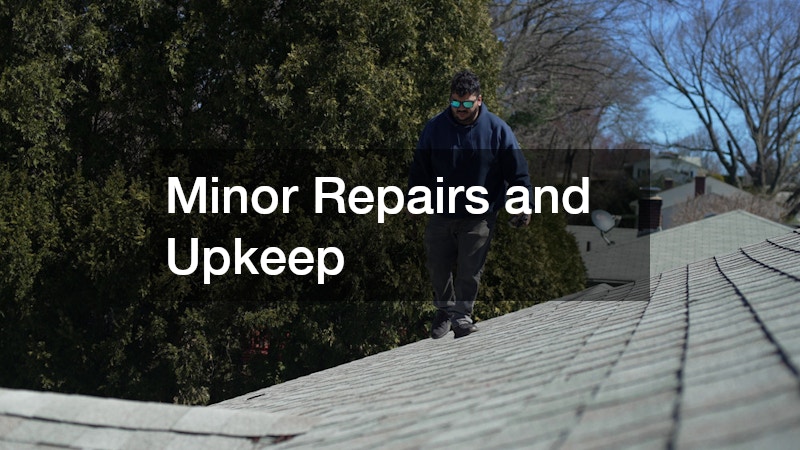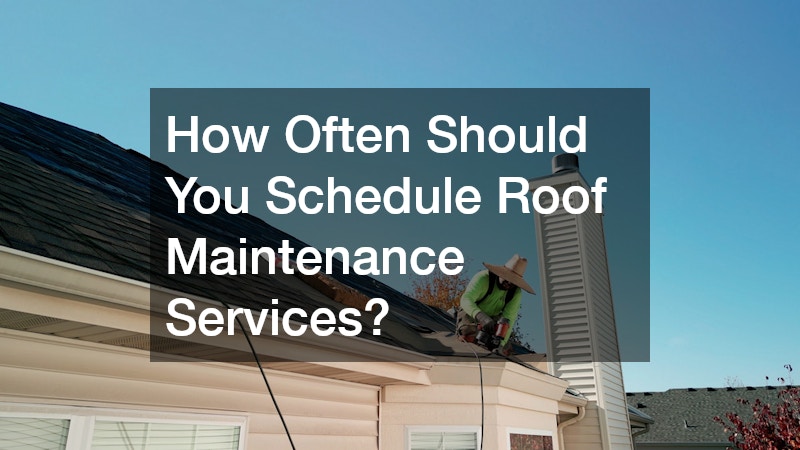Maintaining a sturdy roof over one’s head is not only a basic necessity but also a significant investment. Regular roof maintenance is crucial to ensure the long-term durability and effectiveness of roofing systems. Several factors, such as climate, roofing materials, and environmental conditions, contribute to determining how frequently these services should be scheduled.
The Importance of Regular Roof Maintenance
Extending Roof Lifespan
Regular roof maintenance is a proactive measure that significantly extends the lifespan of the roofing system. By addressing minor issues before they become major problems, homeowners and property managers can avoid premature roof replacement.
Regular cleanings, inspections, and repairs help keep the roof in optimal condition, which can lead to a lifespan extension of several years.
One of the primary benefits of extending the roof’s lifespan is the financial savings realized over time. By investing in routine maintenance, property owners can avoid the high costs associated with frequent roof replacements. Additionally, a well-maintained roof increases the property’s value and energy efficiency, contributing to overall cost savings.
Furthermore, the longevity of any roofing system is a key consideration for sustainability and resource conservation. Extending the life of existing roofs reduces the demand for new materials and the environmental impact of manufacturing. In conclusion, routine maintenance not only benefits the immediate owner but also contributes to broader environmental goals.
Preventing Costly Repairs
Timely roof maintenance is an effective strategy for preventing costly repairs in the future. By identifying and addressing small issues such as leaks, loose shingles, or minor deteriorations, major repair bills can be averted. This approach not only protects the structural integrity of the building but also helps avoid emergency repair situations.
A roof that is regularly inspected and maintained is less likely to experience unexpected failures. Unexpected failures can lead to interior damage such as mold growth, ceiling collapse, or water damage, which are costly to remediate. Therefore, scheduling regular maintenance services provides peace of mind and financial security for homeowners and property managers.
Additionally, preventive maintenance helps manage and plan for repair budgets effectively. Instead of dealing with sudden and expensive repairs, property owners can strategically allocate their budget for maintenance activities. This efficiency in budget planning is a significant advantage of routine roof maintenance, ultimately minimizing unexpected burdens on property finances.
How Often Should Roof Maintenance Be Scheduled?
Residential vs. Commercial Roofs
Residential and commercial roofs have different maintenance needs and thus require distinct scheduling approaches. For residential properties, roof maintenance is typically advised twice a year – in the spring and fall. In contrast, commercial roofs, often with more complex systems, may demand quarterly maintenance checks due to their size and design intricacies.
The difference in maintenance frequency is also influenced by the usage patterns and occupancy rates of the buildings. Commercial buildings experience higher foot traffic, which potentially harms the roof structure, necessitating frequent inspections and repairs. Conversely, residential roofs are often less exposed to such stressors, allowing for less frequent maintenance without compromising integrity.
Furthermore, various regulations and warranty agreements often stipulate specific maintenance protocols for commercial properties. Failure to comply with these requirements can result in voided warranties, emphasizing the importance of understanding the distinct needs of each roof type. As such, recognizing the type and function of the building is crucial to establishing an effective maintenance schedule.
Factors Influencing Maintenance Frequency
Several factors determine how often roof maintenance services should be scheduled for a building. Climate plays a significant role, as regions with harsh weather conditions like heavy rainfall, snow, or high winds require more frequent maintenance. In such areas, roofs are more susceptible to damage and wear, necessitating more regular inspections and upkeep.
The type of roofing material also impacts maintenance frequency. For example, asphalt shingles may require different upkeep compared to metal or tile roofs. Each material has its own set of vulnerabilities and strengths, influencing maintenance schedules.
Common Roof Maintenance Services
Inspection and Cleaning
Routine roof inspections are essential for identifying potential problems before they escalate. During an inspection, professionals examine the roof for signs of damage, wear, and potential leak sources. These inspections are often paired with cleaning services to remove debris and prevent material buildup, which can contribute to roof deterioration.
Cleaning involves removing leaves, branches, dirt, and other debris that can trap moisture and lead to mold growth or rot. Maintaining cleanliness on the roof surface ensures proper water drainage and prevents water from pooling. This simple yet effective service plays a crucial role in maintaining roof health and function.
Minor Repairs and Upkeep
Minor repairs form an essential component of routine roof maintenance, addressing issues before they require extensive repairs. Common minor repairs include replacing or securing loose shingles, sealing small leaks, and reinforcing flashing. These tasks help protect the roof from further damage and extend its service life.
Additionally, maintenance services often include routine upkeep such as sealing roof surfaces to enhance resistance against moisture. Reapplying sealant or coating ensures the roof remains waterproof, especially for flat or low-slope roofs prone to ponding. Upkeep activities complement repairs, ensuring a robust and resilient roof system.
Investing in roof maintenance is an investment in the future of the property itself. The importance of this proactive approach cannot be overstated, as it minimizes risk and maximizes the roof’s performance. Emphasizing the significance of regular maintenance reinforces the notion that careful planning and professional services are indispensable to achieving durable and long-lasting roofing solutions.




